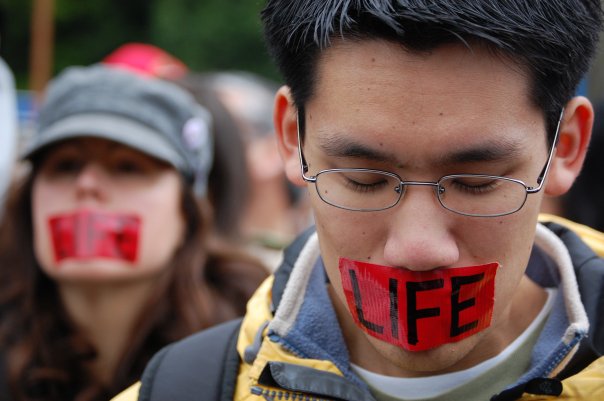(This story was originally published in print on March 14, 2019).
“No uterus, no opinion.” This sentence was uttered by “Friends” star Jennifer Aniston while playing a pregnant Rachel Green. Although Green was speaking to her male friends who were giving her delivery advice, it has since taken on a political tone in national discourse; pro-choice activists use this line as a weapon to wield against men who have qualms about abortion.
Curiously, the slogan is only used one way. No one—to my knowledge—has ever told a pro-choice man that his opinions are invalidated because he lacks a uterus. Pro-choice men are lauded by abortion activists for “extending their privilege” to the sacred struggle against “unwanted pregnancy.” Presumably, women who have had hysterectomies have not been sidelined by pro-choice activists, so long as they support “a woman’s right to choose.” Furthermore, transgender women who have no biological ability to become pregnant are also not sidelined by the slogan’s derision. The only people expected to sit out of the discussion are pro-life men.
SILENCED VOICES
Abortion activists insist that men—presumably half of the voting population—have no right to express an opinion on the most polarizing and morally significant issue today. We must, the implication is, leave that subject to the individuals for whom the issue directly applies, as if that were the way a free society comes to its conclusions.
I believe I speak for the vast majority of men when I say that I have zero interest in controlling the bodies of fully autonomous human beings. The Atwoodian notion that pro-lifers secretly want every woman to consult some committee of men before making a medical decision is a wild-eyed fiction. That was never the issue. The unavoidable question is whether a pregnant woman is responsible for more than just her body. If a human child is nothing more than a parasitic growth, of course it would be moral to remove it and that decision would be no one’s business but the woman’s and her doctor’s. If it is a life, however, the decision is of broader interest to society and even the government. Even the most ardent libertarian believes that government has the duty to protect life. If government does not have the responsibility to forbid murder, what responsibilities do they have left?
Our culture has been divided on this subject for decades in complex ways. According to Gallup, 60 percent of Americans believe that abortion should be legal during the first trimester, implying that over one third of all Americans believe that even the most basic abortive procedure should be banned in most cases. Support for abortion later in the pregnancy is stunningly low—28 percent of Americans support legalizing second-term abortion and only 13 percent support third-term abortions, at which point the baby is viable outside of the womb. The percent of Americans who want to stop a woman from having a root canal or open heart surgery is presumably zero, yet for this question of human worth and its implications, the majority of Americans seem willing to impose their opinion by passing some form of abortion restriction.
THE COURT OF PUBLIC OPINION
We must be willing to philosophically entertain a variety of possibilities on this issue—to duke out in the court of public opinion this “clash of absolutes” basing our opinions in logic and moral courage, not identity. Yet for many pro-choice activists, the conversation is not worth having. Worse, male pro-life activists are derided as sexist, biologically privileged individuals who, if they have any qualms about “a woman’s right to chose,” must be merely paving the way for a “Handmaid’s Tale”-esque hellscape.
Since “Roe v Wade” was decided in 1973, 60 million babies have been legally aborted in the United States—babies of every race, class, and gender. In order to reckon with this and other biomedical conflicts of conscience, we must have a candid societal conversation involving Americans of every race, class, and gender. Perhaps we shall decide that unborn children really are soulless blobs of cells. Or, perhaps we shall recognize them as human beings created in the image of God with entire futures ahead of them. I know how I answer that question, but we may never be able to resolve the issue as a nation if half the country is not allowed to speak to the other.
The conversation concerning the beginnings of human life is not a gendered one. The issue is not whether a particular woman should have a particular medical decision made by the government and its bureaucrats—many of whom may be male—but whether an unborn child should be pulled apart with forceps and sucked up by a vacuum. As new discoveries about the miracle of life are made on a daily basis and as we are being asked to answer new biomedical questions, the last thing we should do is invalidate half the consciences in America. The right to life is an important issue and it would be a terrible question to get wrong. At stake are the souls of our children and by extension, the soul of this country.
But what do I know? I am just a man.















